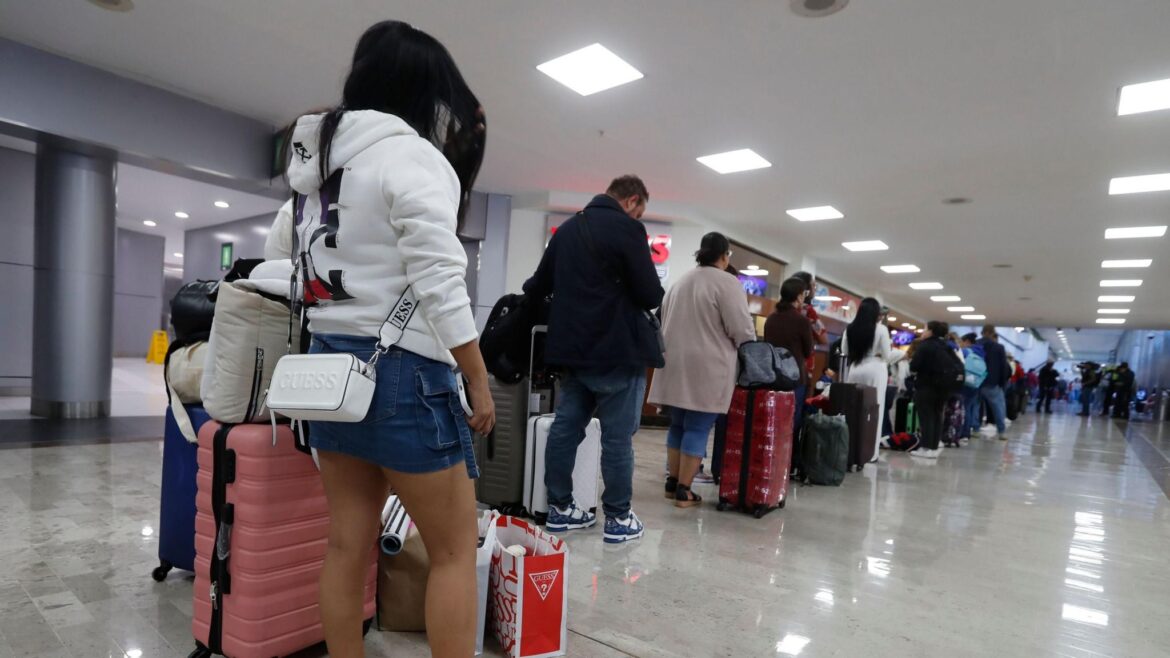Global services slowly recovering after bug causes IT chaos
Businesses and services worldwide are gradually recovering after a significant IT outage disrupted computer systems for hours on Thursday and Friday. The outage, triggered by a faulty software update from cyber-security firm CrowdStrike affecting Microsoft Windows, hit businesses, banks, hospitals, and airlines particularly hard.
CrowdStrike’s CEO issued an apology for the disruption, acknowledging that while a fix has been released, it may take “some time” before all systems are fully operational.
Airlines are slowly returning to normal after thousands of flight cancellations, though delays and cancellations are expected to continue through the weekend. Many businesses are now contending with backlogs and missed orders, which could take days to address.
Health services in Britain, Israel, and Germany also faced disruptions, including canceled operations.
The global disruption has raised concerns about the vulnerability of interconnected technologies and the extensive impact a single software glitch can have.
The issue began at 19:00 GMT on Thursday, affecting Windows users with CrowdStrike Falcon cybersecurity software, though the full scope of the problem only became apparent by Friday morning. By Friday evening, the situation was improving in many regions, with airports reporting ongoing issues with check-in and payment systems but resumed flights.
Downdetector showed fewer tech problems in the UK by the end of the day. CrowdStrike CEO George Kurtz explained on X that the issue was due to a defect in a “single content update for Windows hosts,” and expressed deep regret for the inconvenience caused to customers, travelers, and his own company.
“Many of the customers are rebooting the system and it’s coming up and it’ll be operational.
“It could be some time for some systems that just automatically won’t recover, but it is our mission… to make sure every customer is fully recovered.”
Microsoft has also said that several reboots may be required, with some users reporting that as many as 15 could be needed before the problem is fixed.
Also, tech experts say Crowdstrike’s fix will have to be applied separately to each and every device affected.
Questions are likely now to be raised about Crowdstrike’s influence as one of the largest operators in the cyber-security market and the wisdom of having such a crucial part of the industry controlled by just a small number of companies.
Crowdstrike’s shares fell by around 12% on Friday, at the expense of rivals SentinelOne and Palo Alto Networks.
The problems were first noticed in Australia and possibly felt most severely in the air travel industry.
Airports saw delays, with long queues as flights were canceled or delayed, aircraft grounded and passengers stranded.
Some saw extra staff drafted in to check in passengers manually.
By 18:00 GMT, aviation data from Cirium suggested that more than 4,000 flights – or 3.9% of the total – had been canceled so far on Friday, though the figure may also include flights canceled for other reasons.
Payment systems, banking, and healthcare providers around the world were affected.
It is thought the outage may also have a longer-term effect as companies struggle to pay wages to staff, particularly where payments are made every week.
Some railway companies warned of delays, and broadcasters Sky News and ABC Australia both experienced outages.


